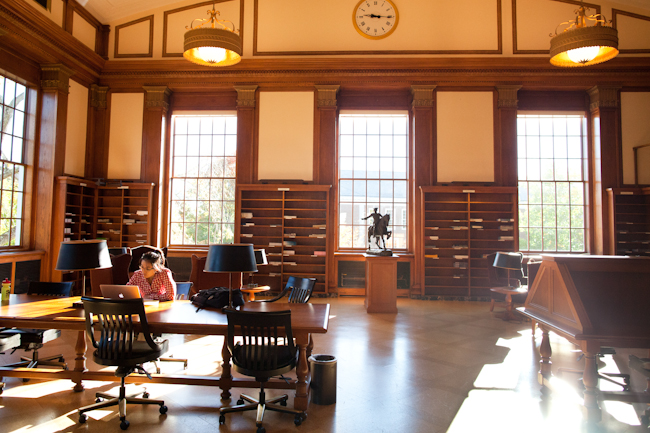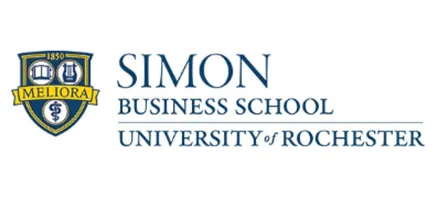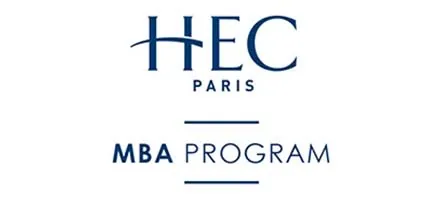
Harvard Business School Baker Library – Ethan Baron photo
With the mayor of Boston expressing concern that students coming to the city will arrive from with high rates of coronavirus, Harvard Business School is now telling MBA students that when they return to campus they need to pretty much behave by following all of the guidelines to prevent a surge of COVID cases.
“As much progress as we’ve made and as robust as our processes might be, we must yet emphasize the fragility of our endeavor,” wrote Dean Nitin Nohria and Executive Dean for Administration Angela Crispi in an Aug. 11 message to the community. “We are reminded of a phrase used early in the School’s history, ‘a delicate experiment,’ and its aptness for the moment we face now. Our success will depend on a number of different factors, many of which feel outside our control, to work and work together smoothly.
“Why do we raise this? Because our actions, individually and collectively, in the coming weeks are within our control and will be a significant determinant of how the fall semester unfolds. HBS and the College, alone among the schools of Harvard, have students formally returning to campus. Mayor Walsh has been vocal in expressing his concerns about the influx of students to the region and the potential resulting impact on Boston and its residents and businesses. In short, all eyes are on us.”
BOSTON MAYOR PRESSING COLLEGES FOR RE-OPENING PLANS
With the exception of Wharton, all of the top M7 U.S. business schools are still planning a hybrid re-opening of in-person and online classes. Harvard Business School, however, is one of only two of Harvard’s 12 degree-granting schools that is offering some face-to-face instruction in classrooms. All the others, including Harvard Law School and Harvard Kennedy School, will be fully online. HBS will also allow students to live in its residence halls, where they will stay in single-occupancy suites with their own bathrooms (see Harvard Business School Decides Against Starting Fully Online).
The gentle warning from HBS comes in the aftermath of reports that Boston Mayor Marty Walsh is pressing area colleges to finish up and submit their reopening plans to the city. To ensure they open safely, students traveling from outside the state are supposed to quarantine for 14 days and get tested within 72 hours to help avoid surges of the virus.
The second-year curriculum kicks off on Sept. 2. The state of Massachusetts reported 229 new confirmed coronavirus cases yesterday (Aug. 12) along with 18 deaths. The percentage of coronavirus tests coming back positive, on average, is down to a new low of 1.5%, according to the Massachusetts Department of Public Health.
FACE COVERINGS, SOCIAL DISTANCING, REGULAR COVID TESTING PART OF PROTOCOL
HBS students need to provide COVID test results before arriving on campus, though they also will be tested again within a few days of arrival and again one week later through Harvard University Health Services. During this period, students must remain in self-quarantine. Tests taken before arriving on campus are not valid for purposes of clearing quarantine.
HBS will require students to adhere to a “Campus Access Protocol” and sign a community contract enforcing practices like social distancing and face coverings in public spaces. Students will also be required to submit to testing at least once a week and to monitor and report their symptoms using the university’s “Crimson Clear” app.
Many of the MBA classes will only be available online. For those in a hybrid format, HBS intends to limit the size of a class to 25 students and to impose requirements for physical distancing and face coverings in indoor spaces, including all dining facilities and retail locations, where contact or interaction with others is expected. Face coverings also are required outdoors when physical distancing is not possible. All campus buildings also will be locked and will require Harvard ID card access. The school is also encouraging members of the community to leverage outdoor spaces as much as possible, employing tents and heat lamps to extend the academic season.
‘WE KNOW WE SOUND LIKE PARENTS’
Among other things, HBS plans to reduce the size of its core classes or required curriculum (RC) for first-year students to 72 from 90. So instead of having eight sections of 90 students each in RC classes, the school plans to have ten sections of 72 students each to allow for social distancing. Second-year MBA students, meantime, will be able to choose from classes taught entirely online and those offered in a hybrid format. Depending on demand, students in hybrid courses may physically be in class on a rotating basis with some portion of their class taking place remotely.
“We always hope that HBS will exemplify a well-run organization, and that is our highest wish today,” added Nohria and Crispi. “In the most difficult of circumstances, can we—together—demonstrate a commitment to our mission that is a model for the University? We need everyone’s partnership to succeed, and we’re counting on everyone to play their part… by wearing masks, by avoiding risky gatherings, by maintaining physical distancing.
“We know we sound like parents at times (we are!). But we are driven by our love for this institution and everyone who comprises it, and we are eager for each of you—students, staff, and faculty—to have an experience at the School that lives up to your expectations of it.”
‘EARLY ON, THE NOVELTY AND ADRENALINE AND URGENCY PUSHED US ALL ON’
HBS is also acknowledging that the re-opening will be different from the more immediate shift online last spring. In a message meant for the school’s staff, Harvard is giving staff an extra day off before the end of the calendar year to award them for their hard work.
“The last few months—from the beginning of the pandemic to the move to remote work and learning, to planning for the fall semester—have required you to take on new responsibilities, to stretch in unimagined ways, to learn different ways of doing things, and to try to anticipate what in most respects remains an uncertain future,” wrote Nohria and Crispi. “Early on, perhaps, novelty and adrenaline and urgency pushed us all on. But now, five months in, and with that many months and more before there seems any reasonable chance of a vaccine, the reality of what lies ahead is upon us. And it’s go time.
“MBA and Doctoral students will be returning, each day, in larger numbers, and we’ll help them get settled in with housing, academic support, and more. Executive Education is building an ever more robust portfolio of online program offerings, and Online is developing a number of new courses. Our incoming faculty have arrived, and the start of the academic year brings with it for them case writing and research projects as well as course development and support. And, all our normal annual processes, such as financial planning, are beginning.
‘WE NEED YOU’
“We looked to see if we could offer you another day off, as we did last month, to allow for a bit of a respite. But truthfully too many of you couldn’t benefit from it—we can’t stop the calendar—and we couldn’t find a day that works well across all groups. But we do want to offer you a freebie: a day you can and should take any time before the end of the calendar year, not counted against your personal or vacation time. For some that may in fact be over the weeks before Labor Day. Others may be able to earmark a Monday or Friday, after the semester is underway, and put a hold on it now (before meetings get scheduled) to have a long weekend. Whatever your approach, we urge you to talk to your manager and plan it.
“Why? We need you, and in fact, will be relying on you—much as we always have—in the weeks and months ahead. Our retired colleague Pat Light, who many of you remember, always used a phrase that feels particularly appropriate now: be sure to take care of the caregiver. These days, you all are caregivers. You’ve been planning, working, and doing on behalf of each other, our students, the faculty, and the School. Put on your own oxygen mask, and find ways to recharge, rest, relax, and re-center.”
DON’T MISS: Harvard Business School Decides Against Starting Fully Online or This Survey Fully Captures MBA Discontent In The Age Of COVID









